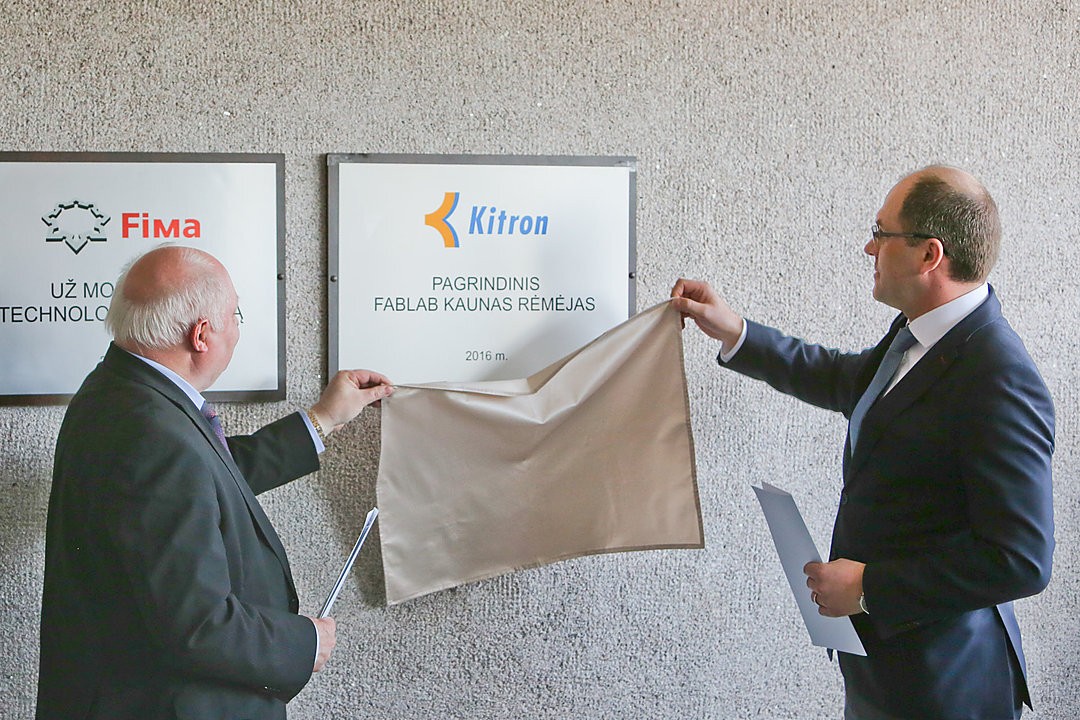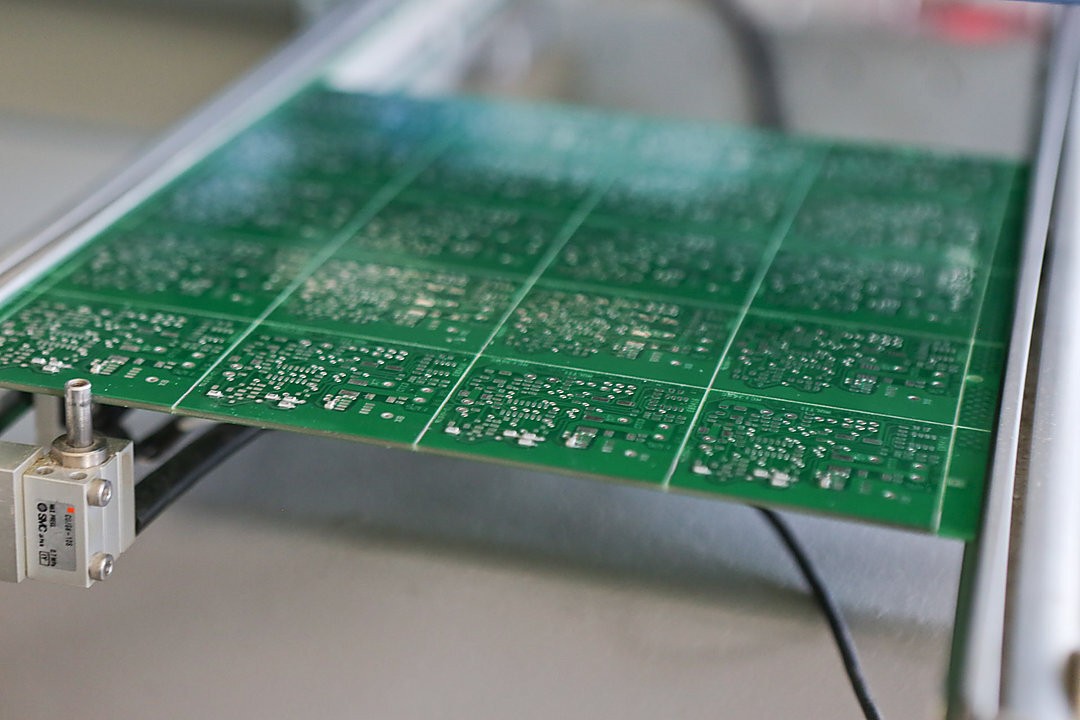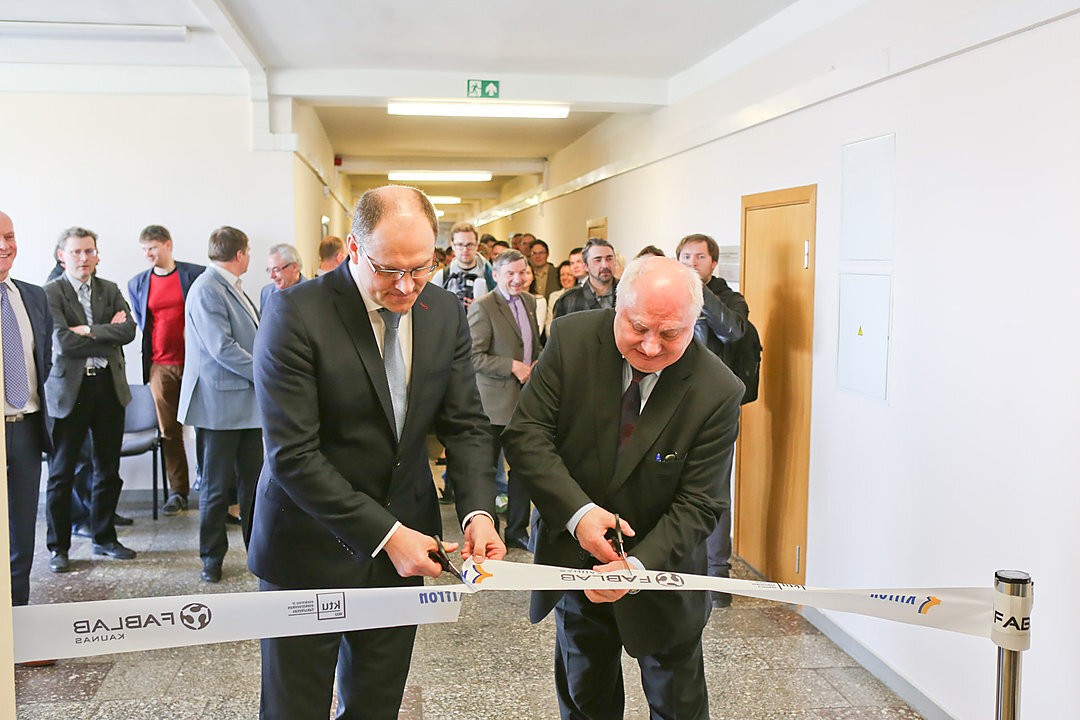The manufacturing process became more complex, electronic products have changed, and more precise equipment is needed to produce them. Many of these product assembly operations have become fully automated. This called a rapidly growing need for electronics engineering specialists.
Kitron and the first IPC Electronics Assembly Laboratory
In 2015, due to the extremely high need for specialists, Kitron Lithuania started cooperating with Kaunas University of Applied Engineering Sciences, which, among other engineering professions, also teaches electronics engineers. In the same year, Kitron opened the first Electronics Assembly Laboratory meeting the IPC (The Global Association for Electronics Manufacturing) standards in Lithuania and the Baltic States. The laboratory was a great sign of trust between Kitron Lithuania and Kaunas University of Applied Engineering Sciences and a strong basis for long-term cooperation, ensuring high-quality training of potential employees. After more than five years, more than 1000 people – over 600 students and 400 employees improved their skills in the Electronics Assembly Laboratory. Training of manual soldering and quality assessment of electronic products are also being held at the laboratory. Kaunas University of Applied Engineering Sciences is the only educational institution in Lithuania providing training according to IPC-A-7711/7721 (contains the procedures to be used for rework, repair, and modification of assembled printed circuit boards) and IPC-A-610 (the standard is a collection of quality acceptability requirements for electronic assemblies) standards for electronics industry employees. These standards are widely applied by electronics manufacturers all over the world. Therefore their application and knowledge ensure high-quality results and a reliable dialogue with customers.
Kitron and the first Fab Lab
In 2016, the first Fab Lab (Fabrication Laboratory) creative engineering workshop in Lithuania started operating at Kaunas University of Technology (KTU). The main sponsor was Kitron Lithuania. The decision to contribute to the project was accepted so that students would be ready to take on practical tasks earlier, as the preparation of a specialist for work sometimes takes even 1-2 years.
FabLab Kaunas serves as a miniature factory of electronics that allows students to get acquainted with electronics production technologies, realize their ideas, and projects up to an actual factory prototype. These workshops train highly qualified electronics specialists, stimulate creativity, and provide practical skills. Fab Lab Kaunas is a result of close cooperation between the KTU Faculty of Electronics Engineering and local business enterprises operating in the Electronics Industry. The main aim of the project is to create added value for both the university and the industry.
The first Fab Lab opened its doors back in 2001 as an initiative of the famous Massachusetts Institute of Technology (MIT) in the United States. Currently, there are more than 1,750 Fab Labs all over the globe! Fab Lab Kaunas is the first fabrication laboratory in Lithuania.



Kitron and the project "Future for Electronics"
This year the cooperation for increasing the popularity of electronics engineering among young students in Lithuania also grew in a new project, "Future for Electronics." Kitron Lithuania, in collaboration with the biggest electronic manufacturing companies, academic institutions, and social partners, joined forces to increase the number of students choosing engineering studies.
According to Mindaugas Šeštokas, Managing Director & VP Central Eastern Europe, the technology is developing so fast that our modern world is undergoing a great deal of change, leading to continuous growth in the demand for electronics specialists. "We hope that the initiative will encourage prospective students to pursue their future careers in electronics as it is an up-and-coming field providing them with opportunities in developing technology that will shape our future," M. Šeštokas said.



